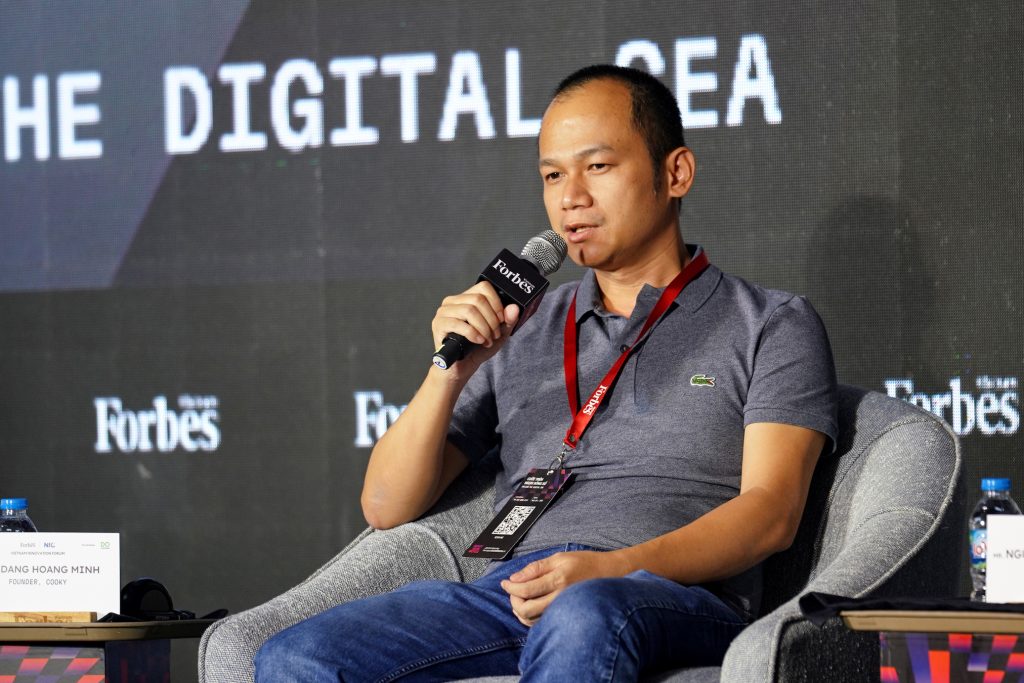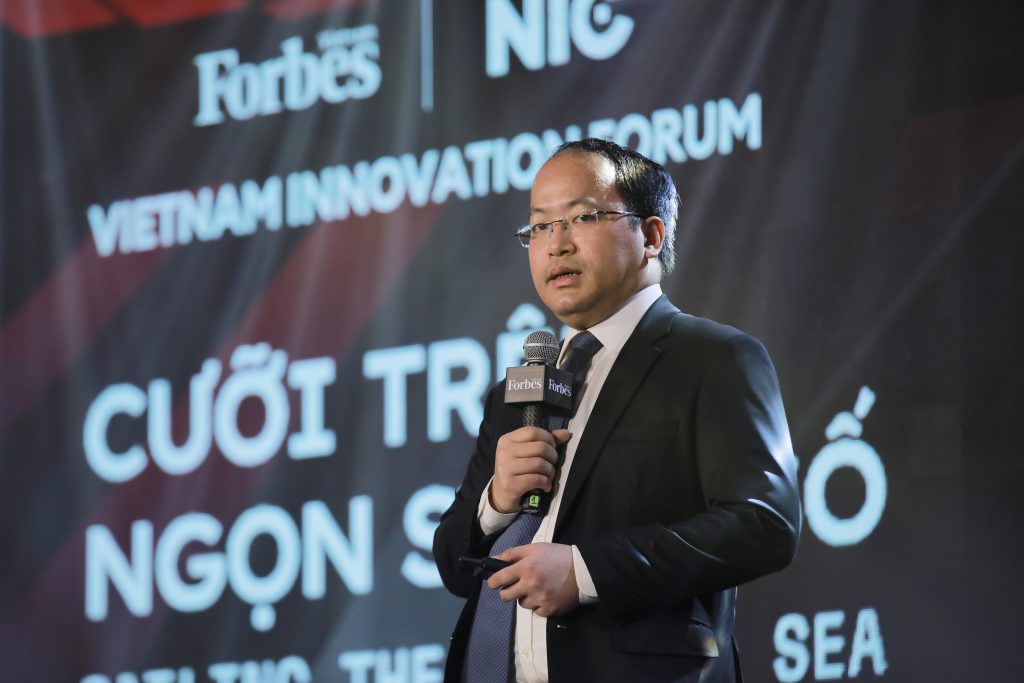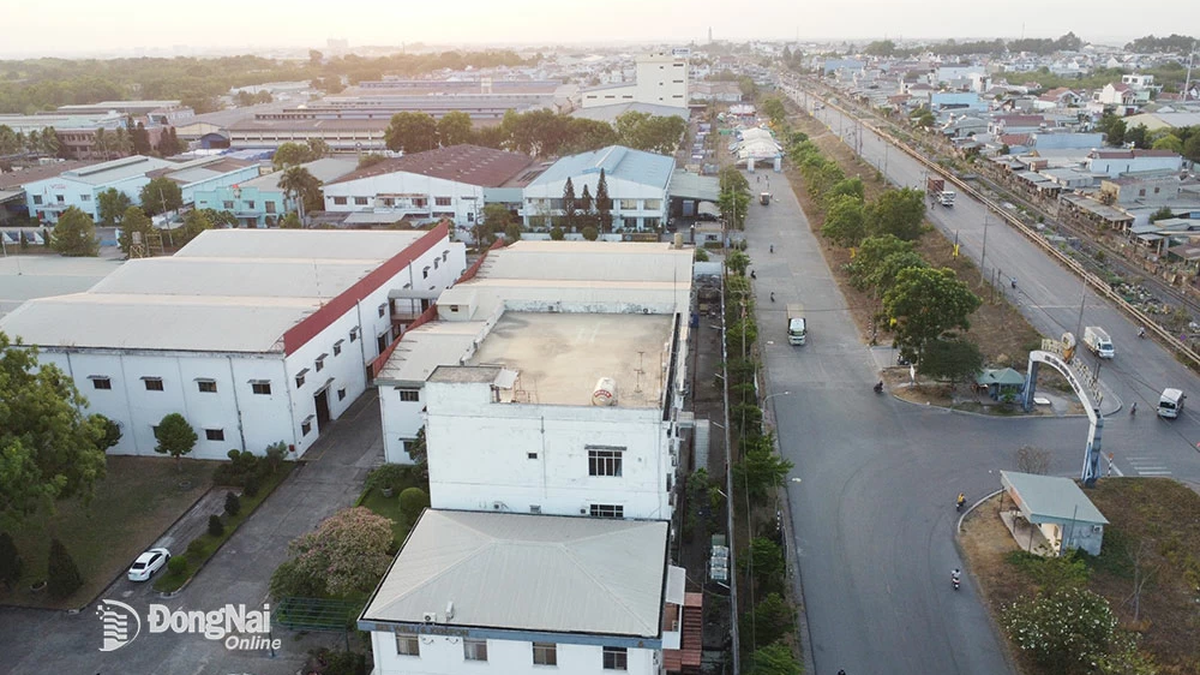In the midst of the "winter" of investment capital, startups believe that learning the ability to survive on their own prepares resources for long-term goals instead of constantly raising investment capital at all costs.

At the discussion session “Turning Crisis into Opportunity”, startup representatives discussed how startups can flexibly adapt and overcome challenges to take advantage of development opportunities when the economy recovers. Ms. Valerie Vu – founder of Ansible Ventures moderated with speakers: Mr. Dang Hoang Minh – co-founder of Cooky; Mr. Nguyen Ba Canh Son – founder of Dat Bike and Mr. Tran Vu Quang – founder of OnPoint. (Photo from left to right)
Tran Vu Quang - Founder and CEO of OnPoint : Be more careful during difficult economic times
OnPoint has raised $60 million in investment. In Q1 2023, the company grew 60% year-on-year and is still operating normally, but in terms of future prospects, we need to be more cautious as the macro economy is constantly changing. We will closely monitor unnecessary waste to cut it down.

OnPoint has no plans to raise capital this year. Going back to the basic business problem of supply and demand, how much capital does your startup need and are there any other options?
There will be many startups out there that have to accept down rounds (the company's value is lower than the previous round of funding). However, company valuation is a time-based indicator, the important thing is to create value for customers, when there is good cash flow, the valuation will increase.
OnPoint is fortunate to operate in the e-commerce sector, which has many opportunities for development. We are also looking for M&A opportunities with brands (online and offline channels), companies in the marketing sector... to add value to our value chain.
Dang Hoang Minh, co-founder and CEO of Cooky : Focus on doing well instead of raising capital
Cooky has only been in the market for 1.5 years, in the food industry and is delivering 500-1,000 ready-to-cook dishes to customers. We aim to help consumers buy food at the best price and cook it as quickly as possible (5-10 minutes). Cooky's ambition in the future is to expand, both delivering food to homes and building an ecosystem for farmers.

Originally a social network for women to share recipes, Cooky initially raised $1.5 million and last year raised $4.5 million. Cooky is now focused on attracting customers, finding orders and not losing money. It would be difficult to dream of having a few million monthly users at the moment.
In the food delivery sector, almost all companies like Cooky are struggling all over the world . However, there are still some bright spots, some companies are not losing money and some are profitable. I am learning how companies can survive on their own instead of always raising investment capital.
Looking at the Korean market, there is a similar company called Oasis, a chain of food stores with 50% online sales, which is already profitable and will be listed this year or next year. Meanwhile, there are companies that are losing heavily or have their valuations reduced. In Cooky's field, if you do it seriously and in detail, you will make a profit.
Nguyen Ba Canh Son, founder and CEO of Dat Bike: Creating short-term value for long-term goals
With the product of electric two-wheelers, Dat Bike wants to convert users in Vietnam and Southeast Asia from using gasoline vehicles to electric vehicles. About 250 million gasoline vehicle users in Southeast Asia are creating a potential market. We do everything from research and development to production and sales. After more than three years of establishment, Dat Bike has launched three models and raised more than 16 million USD in investment capital.

All of Dat Bike's previous funding rounds, from raising $200,000 to several million dollars, have focused on two things: research to create better products and increase production scale and reach customers.
Dat Bike is not under short-term pressure and is growing steadily, but we are cautious to observe. All startups want to change the world in some way (through long-term goals) but resources are limited so we have to choose whether to achieve short-term or long-term goals now.
For me, the issue of a business's valuation being reduced is not very important, but it is necessary to consider whether this will affect investors and whether the relationship between me and investors will be affected.
I see some startups, instead of accepting a reduction in valuation, choose to create short-term value and switch to other work to make money, but this choice needs to be carefully calculated because the opportunity cost is very large, which can greatly affect the long-term path of the company.
Mr. Vu Quoc Huy, Director of the National Innovation Center (NIC): A bridge for innovative businesses

The Government has established the National Innovation Center under the Ministry of Planning and Investment with the function of promoting the national innovation ecosystem and promoting business support. NIC has 5 related areas of operation including technology promotion application; perfecting policy mechanisms; developing human resources; expanding markets, supporting businesses in promoting communications and promoting capital sources. NIC becomes a bridge between policy-making agencies and businesses through proposing institutions and policies. In the near future, the Ministry of Planning and Investment will amend Decree 94 on innovation, NIC will collect information to supplement incentive mechanisms, creating more favorable conditions for businesses to operate and invest in Vietnam. However, there are still many challenges to overcome to promote the innovation ecosystem, and much work to do towards the goal of the digital economy accounting for 30% of GDP by 2030. NIC identifies a number of industries and fields that focus on supporting startups such as smart manufacturing, smart cities, cybersecurity, digital communications, semiconductors, medical technology, etc.
Ms. Le Hoang Uyen Vy, CEO of Do Ventures : Startups need to focus on core values
In 2022, in the context of economic difficulties, total investment capital in Vietnam in the technology sector reached 634 million USD, down 56% compared to the record figure of 1.44 billion USD in 2021. The number of deals was 134, down from 165 deals in 2021.
Deals under $10 million are down, but not as much as those above $10 million. However, rounds between $10 million and $50 million are up compared to 2021, indicating that companies in Pre-A and Series A rounds have matured and continue to raise capital.
Overall, Vietnam ranked third in the number of deals but fourth in value in the region. The sector with the most growth and investment attraction was financial services, up 249% compared to 2021. Next were the healthcare and education sectors.

The total number of investors in Vietnam in 2022 is 137, down from 2021, but what is special is that for the first time, the group of domestic investors has taken the lead and is operating quite actively. Of the 134 deals, domestic investors participated in 64 deals with a total capital of 287 million USD. Domestic investors have shown an important role and are a driving force for the development of the innovation ecosystem.
Investors are confident in Vietnam’s future with its strong economy, young, tech-savvy population, and strong government support for innovation. They said they will maintain the current investment pace, and some will even disburse more because of the many opportunities.
Investors see this as a crucial time, expecting startups to focus on core elements, build sustainable companies and have the flexibility to thrive in difficult times.
According to forbes.vn




















































![[Maritime News] More than 80% of global container shipping capacity is in the hands of MSC and major shipping alliances](https://vphoto.vietnam.vn/thumb/402x226/vietnam/resource/IMAGE/2025/7/16/6b4d586c984b4cbf8c5680352b9eaeb0)













































Comment (0)